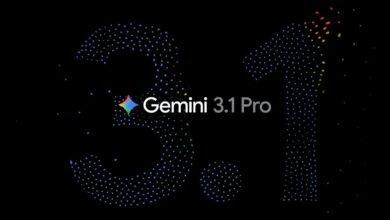AI Musician Lands Multi-Million Dollar Record Deal

▼ Summary
– An AI-generated musician persona named Xania Monet, run by human artist Telisha “Nikki” Jones, has received a $3 million record deal from Hallwood Media.
– Jones uses the AI platform Suno to generate Monet’s vocals, images, and musical production, while writing all the lyrics and taking production credit herself.
– The success of this AI artist occurs amidst ongoing lawsuits, including one from the RIAA against Suno for allegedly training its models on copyrighted music without permission.
– Monet’s song reached No. 1 on an R&B chart and gained significant popularity on TikTok, with her AI-generated nature being unmentioned on her social media page.
– The situation raises questions about profit distribution, artistic credit, and the broader ethical and legal implications of using AI in creative industries.
Malte Mueller/Getty Images
A groundbreaking $3 million record deal for an AI-generated artist is sending shockwaves through the music industry, highlighting both the immense potential and significant legal controversies surrounding artificial intelligence. The deal, secured by human R&B artist Telisha “Nikki” Jones for her digital persona, Xania Monet, with Hallwood Media, represents a new frontier where human creativity and AI generation converge. This development arrives amidst a flurry of lawsuits from major creative industries alleging widespread copyright infringement by AI companies.
Jones leverages the AI music platform Suno to craft Monet’s vocals, images, and musical productions, while she maintains full credit for writing the lyrics and overseeing production. The platform itself is currently facing a high-profile lawsuit from the Recording Industry Association of America (RIAA), which accuses it of illegally training its models on copyrighted music. This creates a stark contrast: as legal battles question the ethics of AI training data, artists like Jones are using the very same tools to achieve a level of success previously out of reach. Monet’s song “How Was I Supposed to Know” already topped the R&B Digital Song Sales chart and gained massive traction on TikTok.
On social media, Xania Monet’s TikTok profile boasts over 322,000 followers and features AI-generated videos of her performing in various settings. While the digitally smoothed skin and slightly unnatural visuals signal an AI origin to observant viewers, her profile does not explicitly disclose this. The reaction from fans is mixed; some comments express surprise upon learning Monet isn’t a real person, while others passionately connect with the lyrics, stating the music profoundly reflects their own lives. According to reports, future plans for Monet include collaborating with more human producers and even staging a live performance, though the logistics remain unclear.
The legal landscape for AI in creative fields is increasingly contentious. The RIAA’s lawsuit against Suno alleges the platform “stream-ripped” songs from YouTube, using voices of famous artists like Mariah Carey without permission. This case is part of a broader pattern that includes The New York Times suing OpenAI and Disney taking action against Midjourney. The core dispute hinges on copyright law, with AI companies often defending their actions under “fair use” doctrines, while creators argue it constitutes outright plagiarism. The legal opinions are moving more slowly than the technology’s development, leaving many questions unresolved.
The success of an AI artist inevitably raises complex questions about profit and authenticity. While Jones and her team will benefit from the multi-million dollar deal, it prompts discussion about whether the AI platforms that generate the core assets, the voice and likeness, could eventually demand a share of the revenue. This scenario draws parallels to AI influencer Lil Miquela, who also secured major deals with real people behind the avatar. For some, this model represents democratization, offering opportunities to those without traditional industry connections. For established artists like Kehlani, it devalues the dedication of human musicians.
The rise of Xania Monet forces the industry to confront difficult questions. How sustainable is a career for an artist who cannot give traditional interviews or perform live in a conventional way? Furthermore, the debate extends beyond music, challenging all creative sectors to define their relationship with AI. Is completely rejecting AI an outdated stance, or is the real issue about consent and control? The central conflict may boil down to ensuring that publishers, artists, and studios have the option to lend their existing work to AI models, rather than having it used without permission. The path to resolving these issues is long, with no clear end in sight.
(Source: ZDNET)





